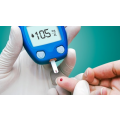For our 2024 rankings, the research team at Nursing Schools Almanac collected data on nearly 3,000 nursing schools and campuses throughout the United States. We evaluated each school on three dimensions:
Search for nursing schools and programs in your state:
Nursing Schools Almanac is excited to announce that Pearl Phillips is the inaugural recipient of the $2,500 RN-to-BSN Scholarship. Pearl has worked for several years in the New York City healthcare system, including various LPN roles with Sisters of Charity Health. In 2017, she completed the ADN program at Excelsior College and earned her RN license. Pearl is now enrolled in the online RN-to-BSN degree program at Villanova University.
The post-master’s doctor of philosophy (PhD) equips masters-prepared nurses to become “global and national leaders, scientists and scholars who make significant contributions in theory generation and knowledge development,” explains the School of Nursing at University at Buffalo. Programs accomplish this through curriculums that cover advanced areas of nursing such as healthcare research, health care policy, information technology, and designing and testing interventions.
Though the path from bachelor of science in nursing (BSN) to doctor of philosophy (PhD) can be challenging, most graduates would agree that it’s well worth the journey. This terminal degree can open the door to top positions at prestigious institutions and major healthcare facilities across the country, leading to higher pay, greater stability, and many other benefits. For example, professionals that hold a doctoral degree have the lowest employment rate in the United States. As of 2016, the unemployment rate for these degree holders was 1.6 percent.
The doctor of philosophy (PhD) in nursing is one of the highest degree levels a nurse can achieve. The program is best suited for registered nurses (RNs) seeking an advanced degree that focuses on research in a clinical, academic or scientific environment. RNs with a bachelor of science in nursing (BSN) or a master of science in nursing (MSN) qualify for entry into programs such as the BSN-to-PhD or MSN-to-PhD option. Nurses who have attained a doctor of nursing practice (DNP) qualify for the DNP-to-PhD option.
Post-master’s doctor of nursing practice (DNP) programs are designed for master of science in nursing (MSN) prepared registered nurses (RNs) looking to take their nursing career, leadership skills, and clinical expertise to the next level. Programs focus on preparing experts in advanced nursing practice, with opportunities in clinical practice, leadership, and policy. Curriculums incorporate the eight essential competencies set by the American Association of Colleges of Nursing (AACN) including:
If you are a registered nurse (RN), and have earned a bachelor of science in nursing (BSN), you are eligible to apply for a post-bachelor’s doctor of nursing practice (DNP) program. Post bachelor’s DNP programs are known as the BSN-to-DNP pathway. These programs are designed for BSN-prepared RNs who desire to complete their master of science in nursing (MSN) and DNP degrees in a specialty area.
A doctor of nursing practice (DNP) is at the top of the degree ladder. Per the Marcella Niehoff School of Nursing at Loyola University Chicago, this terminal degree is designed to provide additional knowledge and skills so that nurses may further enhance the health and well-being of the individuals and communities with whom they work. The curriculum builds on current master’s programs and provides education in evidence-based practice, quality improvement, and systems thinking.
Diabetes remains the 7th leading cause of death in the United States, with more than 330,000 diabetes related deaths in 2015 alone. More than 100 million U.S. adults are now living with diabetes or prediabetes, with an estimated 1.5 million new cases of diabetes diagnosed among people ages 18 and older in 2015. This growing epidemic has created a high demand for diabetes nurses that is higher than ever before.
Nurse practitioners (NPs) are advanced practice registered nurses (APRNs) that assess patients, determine the best way to improve or manage their health, and discuss ways to integrate health promotion strategies into a patient’s life. They serve as primary and specialty care providers, delivering advanced nursing services to patients and their families. Many nurse practitioners specialize in a specific population of people. For example, NPs may work in psychiatric and mental health, pediatric health, or adult and geriatric health.
Per the American Medical Informatics Association (AMIA), nursing informatics (NI) is the science and practice (that) integrates nursing, its information and knowledge, with information and communication technologies to promote the health of people, families, and communities worldwide. Informatics nurses work in a variety of roles including chief nursing officers, developers of communication and information technologies, researchers, policy developers, educators, chief information officers, software engineers, implementation consultants, policy developers, and business owners.















